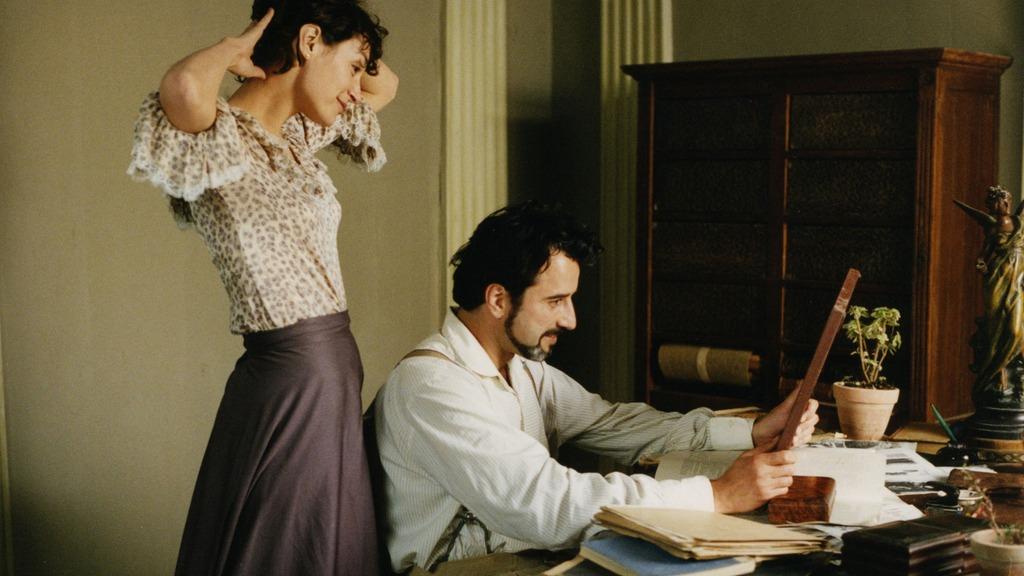
- Select a language for the TTS:
- French Female
- French Male
- French Canadian Female
- French Canadian Male
- Language selected: (auto detect) - FR
Play all audios:
YOU MIGHT SAY THIS WHEN AN UNEXPECTED GUEST IS OUT OF EARSHOT Soup season is here. Whether soupe a l’oignon with its caramelised onions and savoury broth, or creamy leek and potato
Vichyssoise, finding a rogue strand of hair floating in your soup is never pleasant. Arriver comme un cheveu sur la soupe, is an informal expression which refers to an untimely and
unwelcomed arrival. We will look at how to use it and share more thematic phrases to spice up your French conversations. Read also: Caramelised onion soup: recipes inspired by the travels
of two Paris chefs WHAT DOES ARRIVER COMME UN CHEVEU SUR LA SOUPE MEAN? It literally translates as: to arrive like a hair on the soup. This negative expression is not referring to disgust
or uncleanliness but rather to turning up out of the blue in an unexpected and inappropriate manner. Some more appropriate and amusing translations in English are: Variations of this
phrase in French include: * Être posé comme un cheveu sur la soupe * Tomber comme un cheveu sur la soupe * Venir comme un cheveu sur la soupe * Arriver comme une couille dans le potage The
last one should be reserved for informal settings as it uses couille, which is a slang word for testicle. Read also: Bouillon, soupçon: two French culinary terms with other meanings WHAT ARE
THE ORIGINS OF ARRIVER COMME UN CHEVEU SUR LA SOUPE? This expression supposedly appeared in the early 20th Century. The exact origins are hard to pinpoint but the visual nature of this
metaphor conveys a clear meaning. Comme un cheveu sur la soupe is the title of Maurice Regamey’s 1957 film featuring Louis de Funès in his first leading role. The film’s trailer describes
“une aventure qui [lui] tombe du ciel… comme un cheveu sur la soupe,” (an adventure which falls out of the blue like a hair on a bowl of soup). In this context, it hints at the unexpected
and comedic nature of the film, which actually tackles rather serious themes. [embedded content] WHEN DO YOU SAY ARRIVER COMME UN CHEVEU SUR LA SOUPE? This metaphor can refer to an untimely
arrival but could cause offence if said within earshot of the uninvited guest in question. For this reason, it is usually used in the past tense when recounting events: * Elle est arrivée
comme un cheveu sur la soupe, avec deux heures d'avance à la soirée et rien n'était prêt. - She showed up out of the blue, two hours early to the party and nothing was ready. You
could use it in the first-person to acknowledge your awareness of the inconvenience you might be causing: * Je sais, je tombe comme un cheveu sur la soupe mais je n'ai nulle part où
dormir ce soir. - I know, I’m an inconvenience but I have nowhere to sleep tonight. It can also be used more generally to describe an unexpected intervention: * Comme notre projet nous
paraissait parfait, les critiques négatives sont arrivées comme des cheveux sur la soupe. - Since we thought our project was perfect, the criticisms came like a smack in the face. Read also:
French expressions for describing rain: sound like a native TO WHOM DO YOU SAY ARRIVER COMME UN CHEVEU SUR LA SOUPE? It is informal language which can be used with friends and family,
mainly in spoken French. Remember to think carefully before using the phrase as it could be considered rude. OTHER SOUPE EXPRESSIONS? Here are some more French phrases featuring soup to
appease your appetite: * C'est dans les vieux pots qu'on fait les meilleures soupes - If it ain’t broke, don’t fix it * Cracher dans la soupe - To bite the hand that feeds you *
Être soupe au lait - To be a hothead * Être trempé comme une soupe - To be soaked to the skin * Faire la soupe à la grimace - To be in the dog-house with someone Read also: Explore
France's autumn festivals: from cider celebrations to medieval fairs








